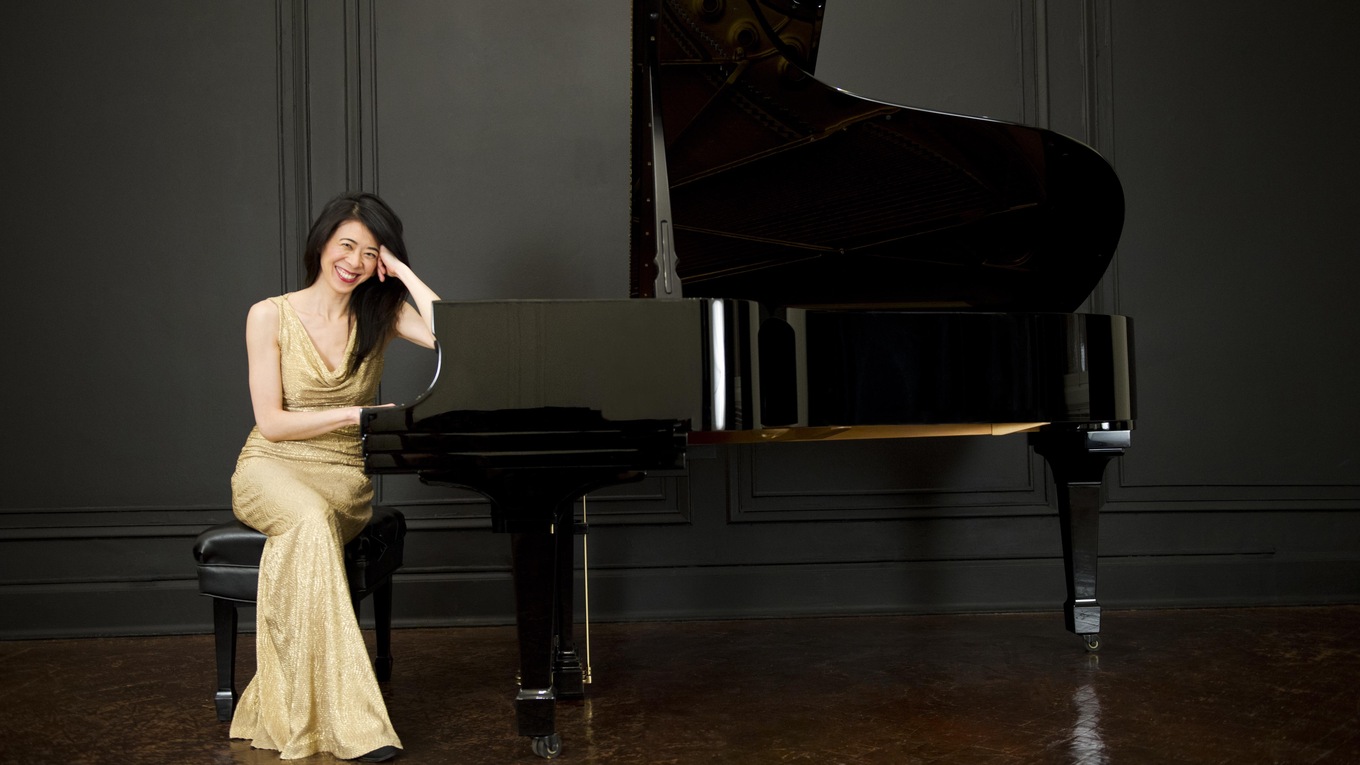The year was 2014. "I got a call from my agent saying, 'Philip Glass is looking for pianists and you're on the list,'" recalls Jenny Lin. It was a call that changed her life.
In December of that year, Lin would join Glass and eight other pianists at the Brooklyn Academy of Music for a performance of all 20 of Glass's Etudes. The composer had recently completed the final four pieces in the set and this would be the first time all 20 would be played in one evening, setting in motion a concert phenomenon that continues to this day.
"From that point, his management just kept asking me to join him on different parts of the tour, in different countries, different settings," says Lin. "Sometimes I pinch myself. I go, 'Really? Wow.'"
Composed between 1994 and 2012, Glass's Etudes continue the tradition established by Chopin, Debussy, Ligeti and others. "His reasons for writing them are very similar to the reasons of all other composers: to perfect technique and to explore certain aspects of virtuosity," Lin explains. "Some of them are very much like Chopin Etudes, some are Lisztian with a lot of octaves and big chords, some are very Debussy and some even Scarlatti-like. They're all really different but of course the language is Philip Glass."
Last November, having played them so much in concert, Lin released Philip Glass: Complete Piano Etudes on the Steinway & Sons label.
The next stop on Glass's complete Piano Etudes tour is Jan. 28 at the Winnipeg New Music Festival, where Glass is the featured composer this year. Lin, Glass and Jónas Sen will perform alongside Canadians Madeline Hildebrand and Vicky Snow. They will each play four Etudes: two in the first half and two after intermission. The concert happens at Centennial Concert Hall at 7:30 p.m., following a pre-concert panel discussion.
"There's a core group that travels, and then we take on locals," explains Lin. "For example, we were in Brazil and we took two local Brazilian pianists to join us. It's been so interesting and exciting, not just meeting the different pianists from each country, but also working with Philip Glass in person."
As Lin explains, Glass's commitment to the project is unwavering. "He's at every one. He always plays the first and second Etudes; he always opens the concert. To see his dedication to this music, after all these concerts and all these years, is amazing to me.
'When can I practise?'
"Let's not forget he's 80, and hitting 81 very soon," continues Lin. "Like any other pianist, the first thing he asks when he arrives is, 'When can I practice? When can I warm up? How's the instrument?' And when he's not performing, he sits backstage and listens to every minute. He is just so involved with everything and everybody's interpretation.
"He's a performer," she concludes. "That's the side that I didn't know before I met him."

Jenny Lin will launch Philip Glass: Complete Piano Etudes at Le Poisson Rouge in New York City on Jan. 31.
While Lin has played individual Glass Etudes in recital alongside other piano works, she says people invariably tell her they'd like to hear all of them. And, in fact, Glass has said he had always conceived of them as a set to be played altogether.
"If you listen from the beginning to the end, everything makes so much sense, and there's such a closure when the last note finishes," Lin reflects. "And I think it is a very special and unique listening experience for the audience."
'Lisztian'
Among the 20 Etudes, Lin does have favourites. "No. 6, I love — it's very Lisztian. And then there are some jazzy ones: No. 9 and No. 10, which I also like. My husband's favourite is No. 16. It's very beautiful and everybody plays it differently."
Conversely, some pose a challenge. "No. 13 has a lot of scales, and sometimes that can be a coordination nightmare. For the two hands it's quite acrobatic."
Lin often gets assigned to play the final Etude of the concert. "After two-and-a-half hours, you hear that and you think, wow, OK, everything makes sense," she says. "The piece is slow, which you never expect with the last Etude [of a set]. All of a sudden, time stands still. There are some Brahmsian chords, like from the Intermezzi, and then it kind of goes to the lower part of the register, and then it just fades.
"Sometimes you can say so much with so little, and that's what he did with this piece."
The Winnipeg New Music Festival takes place from Jan. 27 to Feb. 2. For full programming details, head over to its website.
Follow us on Twitter: @CBCClassical
More to explore:
10 surprisingly good covers of Debussy's 'Clair de lune'
'Farewell my poor hands': Sergei Rachmaninoff's best assets may also have been his undoing
'Dancing around my apartment': Barbara Hannigan on her Grammy nomination for Crazy Girl Crazy

The most influential and engaging music of the 20th and 21st centuries. Lengthy landmarks and tasteful excerpts. Hear: Aaron Copland, Igor Stravinsky, George Gershwin, Elena Riu, Bela Bartok, Arvo Part, Philip Glass and more!
